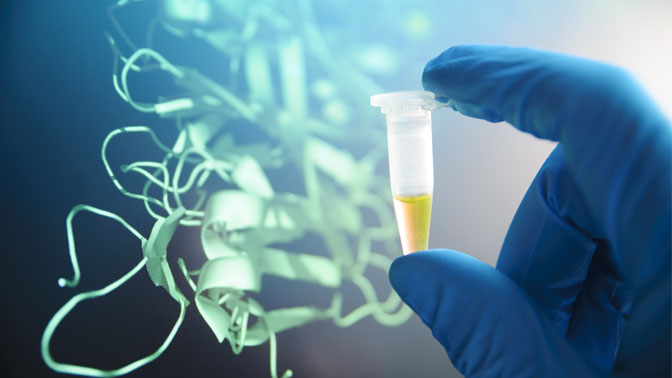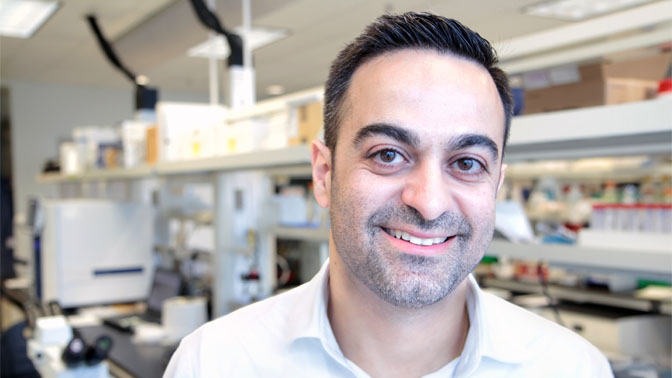
Recognizing patterns is a useful skill that enables us to make predictions and plan for the future.
A new study from Princess Margaret (PM) Cancer Centre suggests that protein patterns expressed by brain tumours reveal information about their aggressiveness and location. This information can be useful for disease management.
The study focused on a common form of brain tumour called meningioma, which develops in tissues that surround the brain and spinal cord.
“Predicting the behaviour of these tumours using a standard assessment of cellular features under a microscope is not always accurate,” explains Dr. Phedias Diamandis, PM Scientist and Neuropathologist at University Health Network. “In some cases, tumours that are classified as less aggressive return after therapy, which is the opposite of what we would expect.”
This disparity has prompted clinical researchers to explore the use of genetic information to distinguish between clinical subtypes. While mapping the genetic landscape of meningioma has provided insight into the biology of the disease, our understanding of these tumours at the protein level has been lacking.
As most therapies are designed to target proteins, understanding which proteins the tumours are most dependant on for growth and aggressiveness provides an exciting avenue to design more effective and less toxic therapies.
To address the gap, Dr. Diamandis and his team used state-of-the-art technology to profile over 3000 proteins in 61 meningioma tumours. They compared protein patterns across different groups of cancers based on the aggressiveness, location, treatment type and whether the cancer returned after treatment.
They found that protein patterns differed according to the tumour’s size and location within the skull, as well as its aggressiveness.
“These findings suggest that global molecular profiling of brain tumours could one day help physicians to identify aggressive cancers and to better customize treatments to individual patients,” says Dr. Diamandis.
To watch a video of Dr. Diamandis describing his research, click here.
This work was supported by the Ontario Institute for Cancer Research’s Ontario Molecular Pathology Network, Department of Pathology at the University Health Network the Brain Tumour Foundation of Canada, the Canadian Institutes of Health Research and The Princess Margaret Cancer Foundation.
Papaioannou MD, Djuric U, Kao J, Karimi S, Zadeh G, Aldape K, Diamandis P. Proteomic analysis of meningiomas reveals clinically-distinct molecular patterns. Neuro Oncol. 2019 May 11. doi: 10.1093/neuonc/noz084.

Dr. Phedias Diamandis, Scientist, Princess Margaret Cancer Centre and Neuropathologist, University Health Network.




